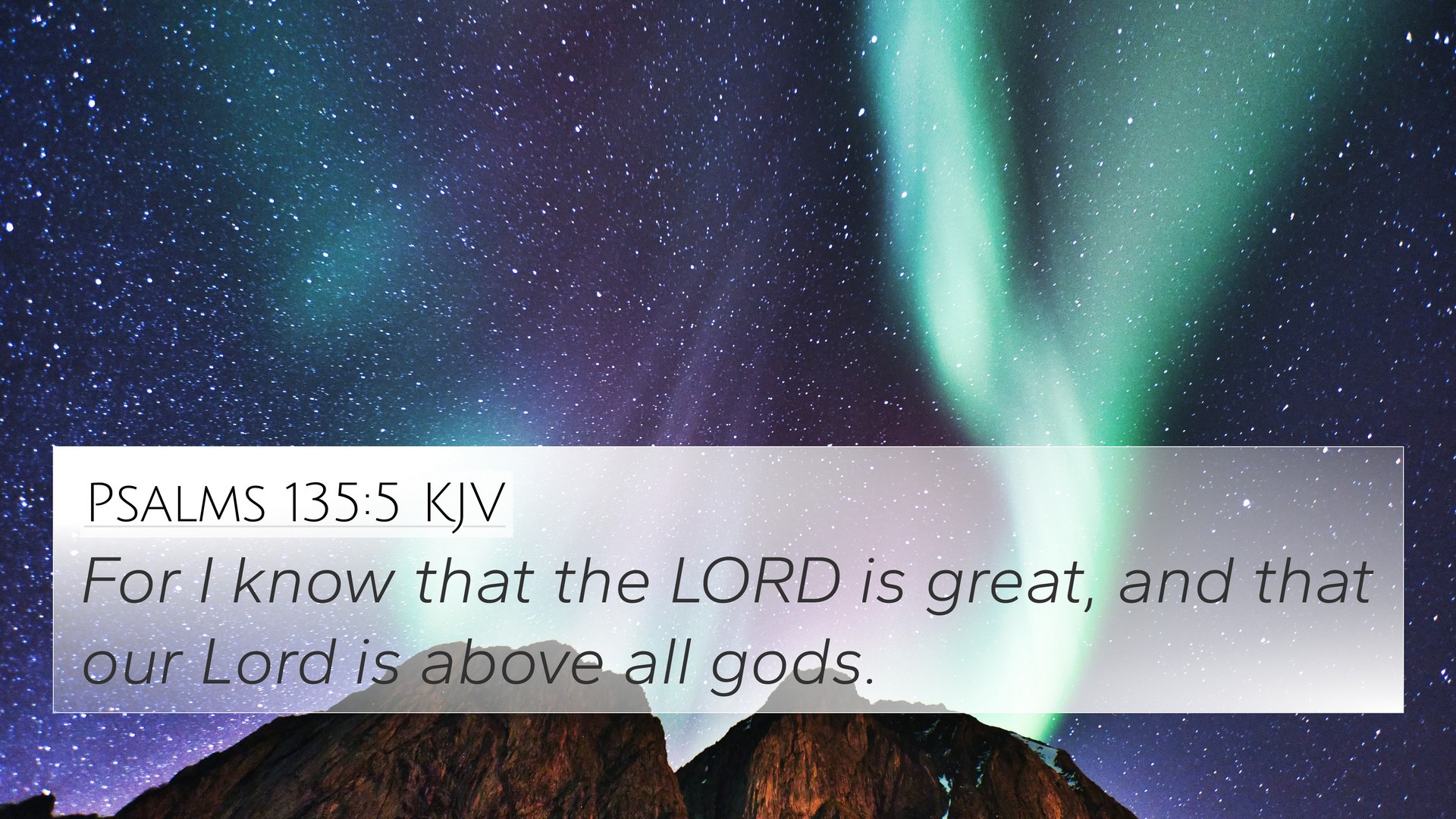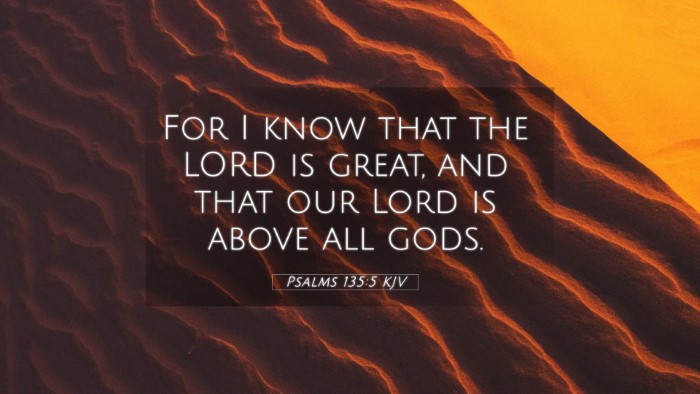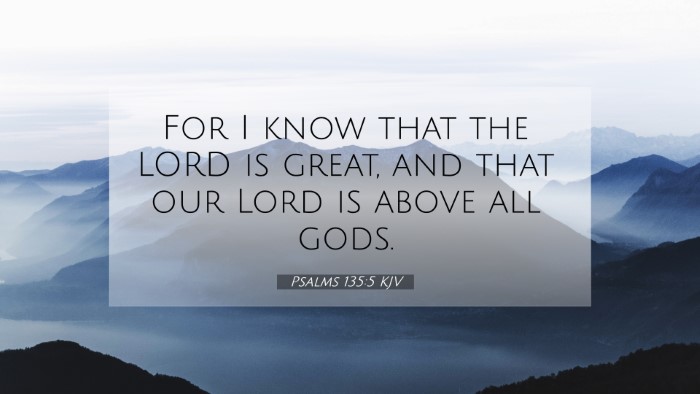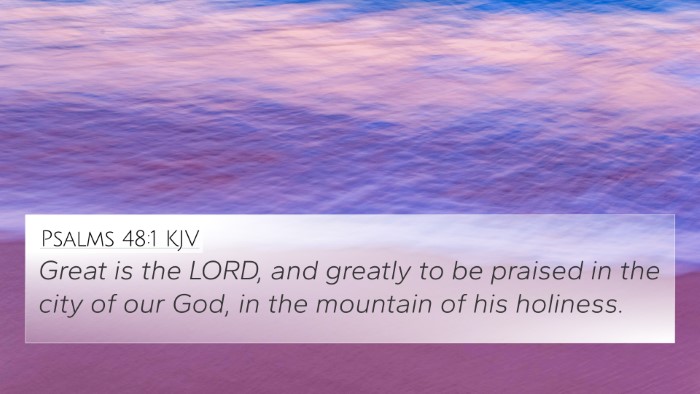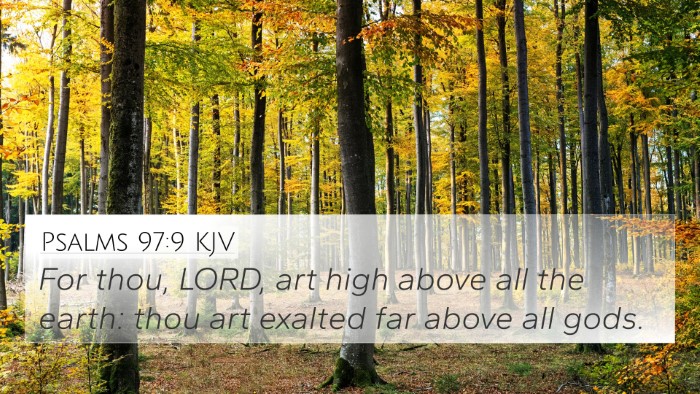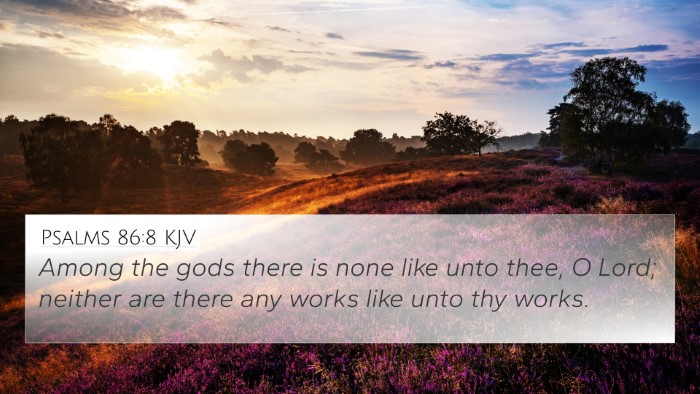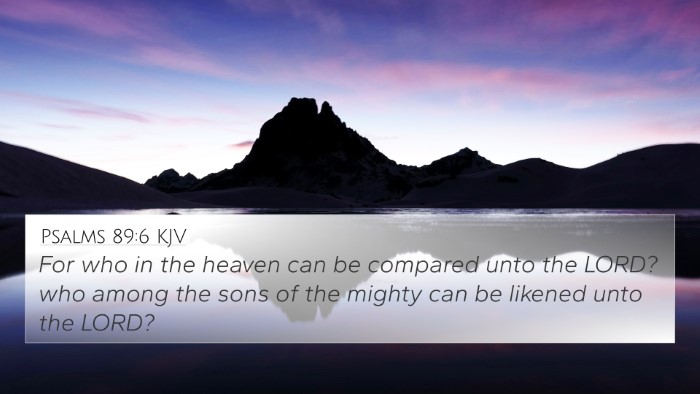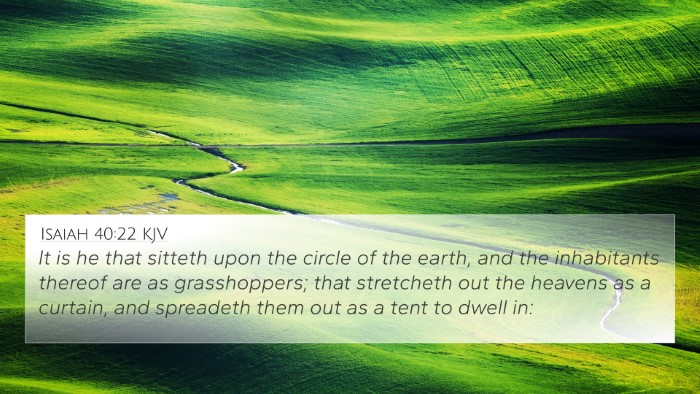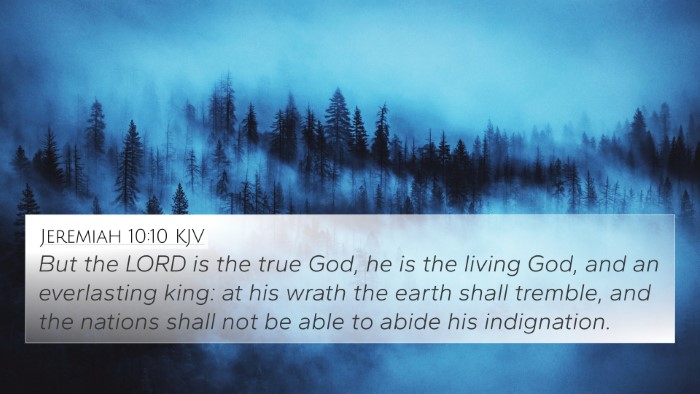Psalms 135:5 - Meaning and Interpretation
Psalms 135:5 states, "For I know that the Lord is great, and that our Lord is above all gods." This verse emphasizes the supremacy and greatness of God, affirming His position above all idols and false deities.
Summary of Insights
Drawing from the insights of several public domain commentaries, this summary elaborates on the profound meaning encapsulated in Psalms 135:5.
Matthew Henry highlights the differentiation between true worship and idolatry, illustrating how the Lord’s greatness is evident not just in creation but also in His providence and deliverance for His people. He emphasizes the need for believers to acknowledge God’s superiority over any false gods.
Albert Barnes explains that the mention of 'all gods' symbolizes not just idols made by hands but all forms of authority and power that oppose divine sovereignty. He expands upon this thought by linking the verse to themes of divine justice and the affirmation that ultimately, God reigns supreme over all.
Adam Clarke provides a cultural context, suggesting that this declaration may serve as a challenge against polytheistic beliefs that were prevalent at the time. Clarke underlines the importance of understanding God’s greatness in the life of the believer as a source of encouragement amid trials.
Key Themes and Applications
- The Greatness of God: This verse serves as a reminder of God’s omnipotence and authority.
- Superiority to Idolatry: The text distinguishes the living God from man-made idols, reinforcing the futility of worshipping false gods.
- Encouragement for Believers: Knowing God's greatness provides believers confidence and assurance in their faith journey.
Cross-References
To enrich your understanding of Psalms 135:5, consider the following cross-references, which highlight connections between Bible verses:
- Psalm 95:3: "For the Lord is a great God, and a great King above all gods."
- Isaiah 46:9: "Remember the former things of old; for I am God, and there is no other; I am God, and there is none like me."
- 1 Corinthians 8:5-6: "For although there may be so-called gods in heaven or on earth—as indeed there are many ‘gods’ and many ‘lords’—yet for us there is but one God, the Father."
- Jeremiah 10:10: "But the Lord is the true God; he is the living God, the eternal King."
- Acts 14:15: "Men, why are you doing these things? We also are men, of like nature with you, and we bring you good news, that you should turn from these vain things to a living God."
- Romans 1:25: "Because they exchanged the truth about God for a lie and worshiped and served the creature rather than the Creator, who is blessed forever! Amen."
- Isaiah 40:18: "To whom then will you liken God, or what likeness compare with him?"
- Psalm 113:5: "Who is like the Lord our God, who is seated on high?"
- 1 Timothy 6:15-16: "He who is the blessed and only Sovereign, the King of kings and Lord of lords, who alone has immortality, who dwells in unapproachable light."
- Philippians 2:9-11: "Therefore God has highly exalted him and bestowed on him the name that is above every name."
Inter-Biblical Dialogue
This section elaborates on the connections between various scripture passages and the overarching themes they establish about the nature of God:
- Thematic Connections: The concept of God’s greatness recurs throughout the Psalms and extends into prophetic literature, reinforcing a continuous narrative about divine sovereignty.
- Comparative Analysis: Engaging in a comparative analysis of verses such as Isaiah 46:9 and Psalm 95:3 helps to strengthen one’s understanding of God’s unique position.
- Practical Applications: Understanding how different biblical texts interact can give insight into personal faith and worship practices.
- Tools for Cross-Referencing: Utilizing tools like a Bible concordance or a Bible cross-reference guide can enhance your study of scriptural texts and their interrelations.
Conclusion
Psalms 135:5 serves as a pivotal reminder of the greatness of God and His supremacy over all forms of idolatry. Engaging with this verse through cross-references not only deepens your understanding but also fosters a more robust faith amidst life’s challenges. Through this verse, believers are encouraged to reflect on their worship practices and recognize the living God above all else.
